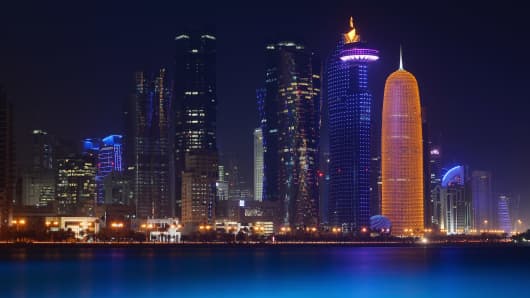Qatar will become Deutsche Bank's largest shareholder, with a stake of around 6 percent, after the German lender announced it was raising €8 billion of new capital ($11 billion), with €1.75 billion coming directly from the Qatari royal family through its Paramount Services Holdings vehicle.
In 2008, Qatar plunged £6.1 billion into Barclays – Europe's only other global investment bank – at a time when there was a very real possibility that the U.K. government would bail it out. The agreement, which was structured with a series of complex warrants, earned the gas-rich country a massive return, estimated at around £1.7 billion. It also sparked controversy, leading to an ongoing investigation by both the Serious Fraud Office and the UK market regulator into fees paid during the emergency cash call, in which Qatar deny any wrongdoing.
Read MoreDeutsche Bank sees 'tectonic plate shift' in banking
But Qatar is unlikely to replicate the bargain it did with Bob Diamond in Germany. Not least, because the Deutsche Bank arrangement is rather vanilla in comparison, with only straight shares being sold at a discount. However, with the German lender trading below 0.8 percent tangible book value there is significant upside to be gained after Europe's summer of stress tests has come to a close.
In any case – Qatar's ascension to gas power giant, has transformed what it wants out of its deals. Sure, it is trying to insure against the finite nature of revenues from the 26 trillion cubic meters of gas it is sitting on. But with per capita income at $83,000 - second only to the banking enclave of Liechtenstein – the timelines are so long dated that what it gains politically is as vital as what it does financially.




